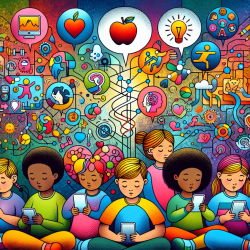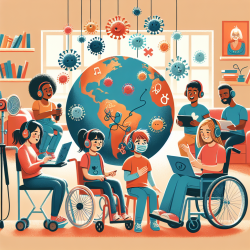As practitioners dedicated to improving the outcomes of children, staying abreast of the latest research is crucial. A recent study titled "A mobile healthy lifestyle intervention to promote mental health in adolescence: a mixed-methods evaluation" offers valuable insights into the effectiveness of mobile health (mHealth) interventions for promoting healthy lifestyles and mental health among adolescents. This blog will distill key findings from this study and provide actionable recommendations for practitioners looking to integrate mHealth solutions into their practice.
Key Findings from the Study
The study evaluated the #LIFEGOALS app, an mHealth intervention designed to promote physical activity, reduce sedentary behavior, improve sleep quality, and encourage daily breakfast consumption among adolescents. The intervention included self-regulation techniques, gamification elements, a support chatbot, and health narrative videos. Here are some of the key findings:
- Physical Activity and Sedentary Behavior: The intervention was effective in increasing physical activity and reducing sedentary behavior among adolescents who had normal sports access. However, these effects were not observed in adolescents with restricted sports opportunities due to the COVID-19 pandemic.
- Sleep Quality: Significant improvements in sleep quality were noted among participants, regardless of pandemic-related restrictions.
- Mood and Psychological Well-being: Positive effects on mood were observed, but only in adolescents who had full in-school education. Conversely, those with pandemic-induced remote education experienced a decline in health-related quality of life (HRQoL), mood, and peer support.
Actionable Recommendations for Practitioners
Based on the findings, here are some recommendations for practitioners looking to implement mHealth interventions:
- Focus on Context: The effectiveness of mHealth interventions can be significantly influenced by contextual factors such as access to sports facilities and the type of education (in-school vs. remote). Tailor your interventions to consider these contextual variables.
- Enhance Engagement: High non-usage attrition rates indicate the need for more engaging elements. Consider incorporating gamification, personalized feedback, and interactive features like chatbots to maintain user engagement.
- Promote Social Interaction: Social factors play a crucial role in the effectiveness of mHealth interventions. Encourage peer support and social sharing features to enhance the sense of community and belonging among adolescents.
- Monitor and Adjust: Regularly monitor the usage and effectiveness of the mHealth tools and be prepared to make adjustments based on real-time feedback and changing contextual factors.
Encouraging Further Research
While the #LIFEGOALS app showed promise, the mixed results highlight the need for further research to optimize mHealth interventions. Practitioners are encouraged to contribute to this growing field by conducting their own evaluations and sharing findings with the broader community.
To read the original research paper, please follow this link: A mobile healthy lifestyle intervention to promote mental health in adolescence: a mixed-methods evaluation.










